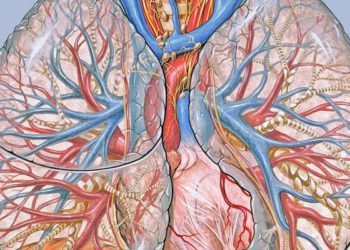Cognitive outcomes in older adults undergoing cardiovascular procedures unclear
1. From a systematic review, there is a paucity of studies reporting long-term cognitive outcomes in older adults undergoing cardiovascular procedures.
2. The few studies identified reported little to no difference in cognitive outcomes between comparison groups and controls.
Evidence Rating Level: 1 (Excellent)
Study Rundown: It is unclear whether cardiovascular interventions in elderly patients contribute to cognitive impairment. This systematic review examined the association of carotid or coronary revascularization, valvular replacement or repair, and ablation for atrial fibrillation on long-term cognitive outcomes for adults 65 years of age or older. No studies of coronary artery bypass grafting (CABG) showed any significant effects on the incidence of negative cognitive outcomes, and several studies showed improvement in memory for patients receiving on- or off-pump CABG. One randomized controlled trial (RCT) demonstrated improved cognitive outcomes for CABG with minimal extracorporeal bypass. In one prospective cohort study, symptomatic patients with carotid endarterectomy (CEA) undergoing laparoscopic cholecystectomy had improved cognitive testing. One prospective cohort study demonstrated that patients undergoing transapical transcatheter aortic valve replacement (TAVR) had increased cognitive decline compared to surgical aortic valve repair (SAVR). No cognitive differences were noted between patients receiving CABG and valve repair together versus separately, or in those receiving surgical valve repair under normothermic vs. hypothermic conditions. Incidence of stroke peri-operatively was uncommon and did not differ between treatment groups compared in the individual studies. This review was largely limited by the included studies, which were consistently deemed low or insufficient in strength of evidence. Overall, better evidence is needed to assess cognitive outcomes after cardiovascular procedures.
Click to read the study, published today in The Annals of Internal Medicine
Relevant Reading: Post operative cognition dysfunction after cardiac surgery
In-Depth [systematic review]: A total of 21 unique studies (17 RCTs and 4 prospective cohort studies) were identified that reported either cognitive function or results of neuropsychological testing (such as the Mini Mental Status Exam). Risk of bias was rated high in 3, moderate in 11, and unclear in 7 studies. About 80% of the study population was male and the mean age was 68 years. One prospective cohort study comparing on- and off-pump CABG versus medical management found an increase in cognitive function at 6 months, but was deemed high risk of bias due to follow-up losses. Five RCTs and 1 prospective cohort comparing on- and off-pump CABG showed statistically significant improvement in memory testing, but no differences between groups. One study comparing CABG with normal vs. minimal extracorporeal bypass showed a decrease in cognitive impairment risk from 61% to 21% (risk ratio 0.34; 95%CI 0.16-0.73) with minimal bypass. Symptomatic patients with CEA undergoing laparoscopic cholecystectomy had improved testing at 12 months on the Montreal Cognitive Assessment (p < 0.01). There were no differences in testing between CEA and endovascular carotid revascularization. One prospective cohort study of older patients with aortic stenosis undergoing TAVR had increased cognitive decline at 3 months compared to SAVR (28% vs. 6%, p = 0.041) but was limited by heterogeneity across groups.
Image: PD
©2015 2 Minute Medicine, Inc. All rights reserved. No works may be reproduced without expressed written consent from 2 Minute Medicine, Inc. Inquire about licensing here. No article should be construed as medical advice and is not intended as such by the authors or by 2 Minute Medicine, Inc.







